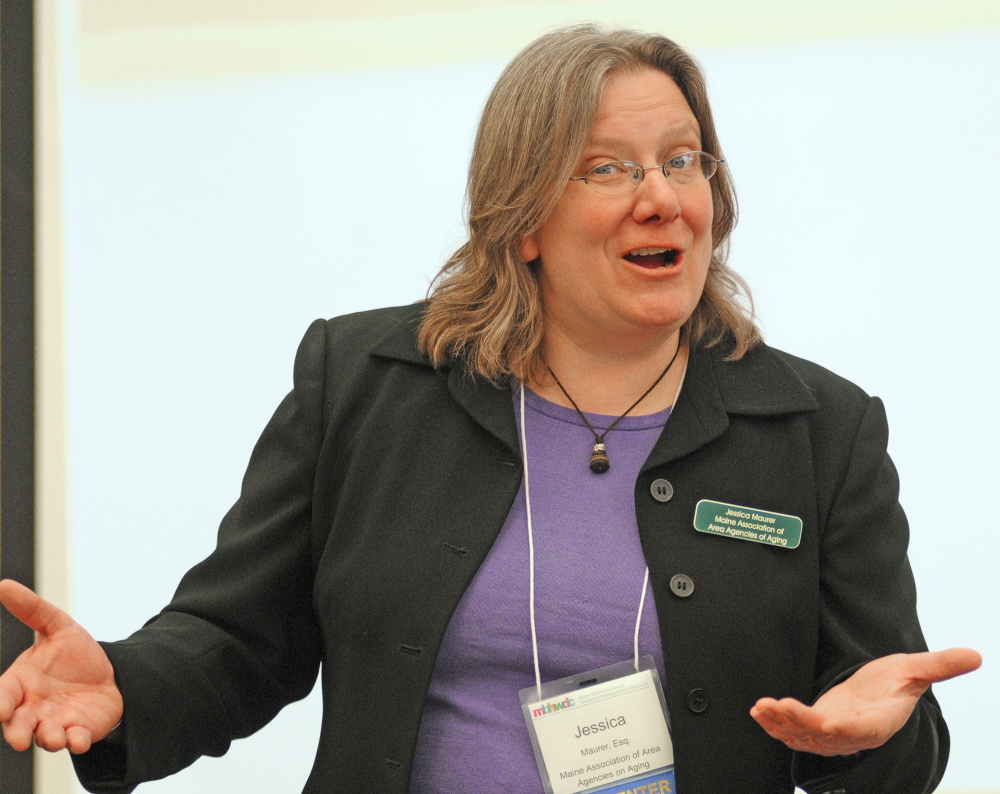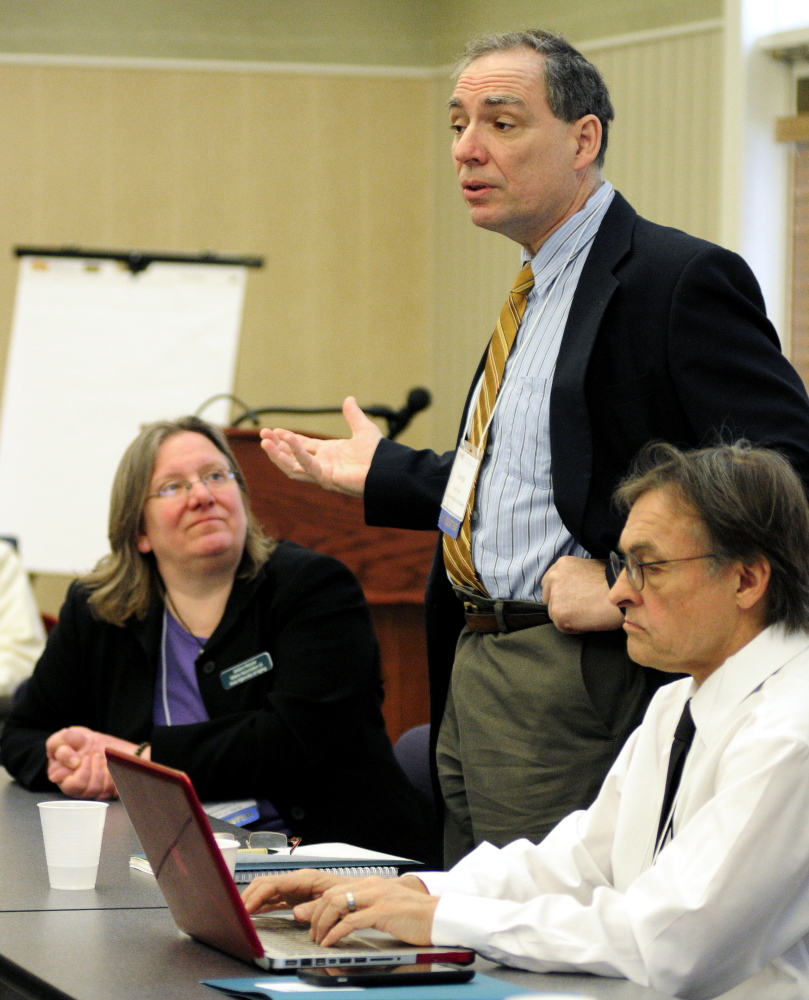AUGUSTA — A few years ago, a retired couple in Waldo County hired a handyman to make some house repairs. Within a few weeks, the handyman, a sex offender, and his girlfriend were living in the back room.
One day, the handyman took the husband, a heavy drinker, on a fishing trip. They drank. By day’s end, the two ended up in the town office, where the drunk husband signed a deed giving control of their modest home to the handyman. A clerk notarized it. After the husband and wife complained, the handyman evicted them.
That’s when Legal Services for the Elderly was called. The couple got the house back, but only after a legal fight. A panel of experts at the Maine Hospital Association’s office on Thursday said that this sort of case isn’t uncommon. It’s a peripheral issue surrounding substance abuse among seniors in Maine, and panelists said the nation’s oldest state by median age must tackle it in a concerted fashion.
“This is not a situation that will be solved … by anyone in this room,” said Jessica Maurer, executive director of the Maine Association of Area Agencies on Aging. “It’ll be solved by everyone in this room and every community in Maine.”
The U.S. Administration on Aging expects the senior population in Maine to rise from 250,000 in 2015 to 374,000 in 2030, with more than 26 percent of Mainers above age 65, more than any state besides Florida. As a result, the state faces unique challenges. In 2014, the United Health Foundation found that Maine was the 14th best state for senior health in the nation, but there were issues.
It found that nearly 5 percent of seniors were chronic drinkers, defined as at least 60 drinks in the past month for men and 30 in the past month for women. Only nine states had higher rates.
Also, while seniors made up nearly half of Maine’s alcohol and drug deaths in 2010, they comprised just 1.4 percent of the people seeking substance abuse treatment. Maine also has the nation’s third-highest rate of depression among seniors.
Also, in 2012, Maine had the highest percentage of long-term opiate prescriptions in the nation with doctors writing nearly 22 prescriptions per 100 Mainers, more than twice the national average. Panelists at Thursday’s forum, run by the Maine Behavioral Health Workforce Development Collaborative, said isolation plays a large part in substance abuse and other issues for seniors, and having too many prescription drugs in the home can lead to misuse or theft by people exploiting elders.
Lewis Mehl-Madrona, a physician who is a geriatric specialist at the Maine Dartmouth Family Medicine Residency in Augusta, said doctors must focus on educating patients on methods to cope with physical and emotional pain, including directing them toward therapy, meditation and other mechanisms.
“We really have to begin to think less about ‘What pill am I going to hand out to this patient?’and more about ‘How am I going to help this person reduce their suffering?’,” he said.
Maine policymakers have drawn attention to the state’s aging issues. For example, House Speaker Mark Eves, D-North Berwick, is proposing $65 million in borrowing to build 1,000 new units of affordable senior housing statewide. Maurer said that could help seniors age in tight-knit communities, improving health outcomes.
However, advocates also see a cultural issue around substance abuse. Nancee Campbell, a volunteer with AdCare Educational Institute of Maine, sees many people shrug their shoulders when told a senior has a problem that they could change. Their sentiment?
“Oh, they’re 75, why bother?” she said.
Maurer said people must not only identify substance problems, but urge action.
“Another barrier around substance abuse is thinking that there should be something done,” she said. “It’s going to be a harder sell.”
Michael Shepherd — 370-7652
Twitter: @mikeshepherdme
Copy the Story LinkSend questions/comments to the editors.




Success. Please wait for the page to reload. If the page does not reload within 5 seconds, please refresh the page.
Enter your email and password to access comments.
Hi, to comment on stories you must . This profile is in addition to your subscription and website login.
Already have a commenting profile? .
Invalid username/password.
Please check your email to confirm and complete your registration.
Only subscribers are eligible to post comments. Please subscribe or login first for digital access. Here’s why.
Use the form below to reset your password. When you've submitted your account email, we will send an email with a reset code.